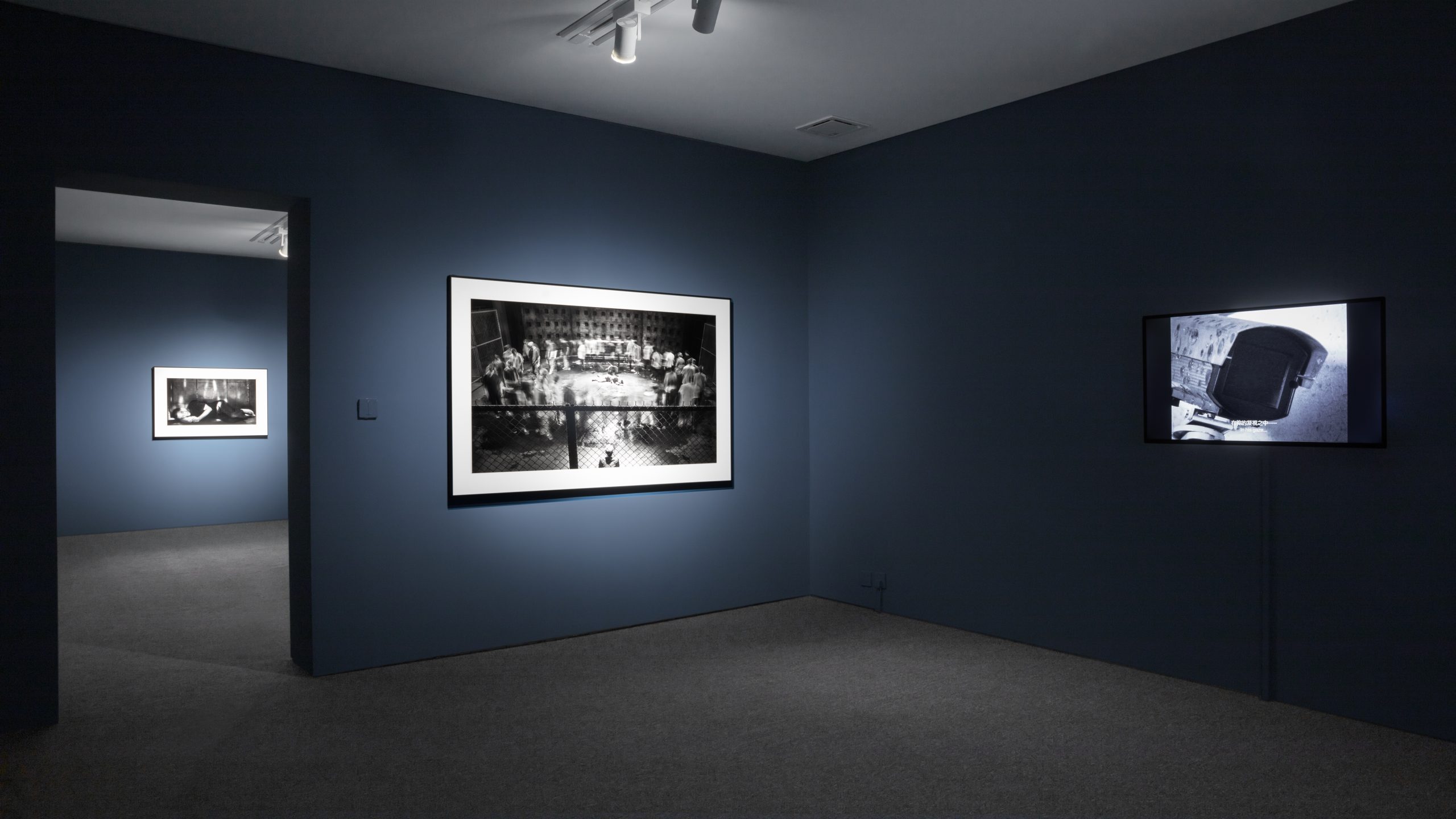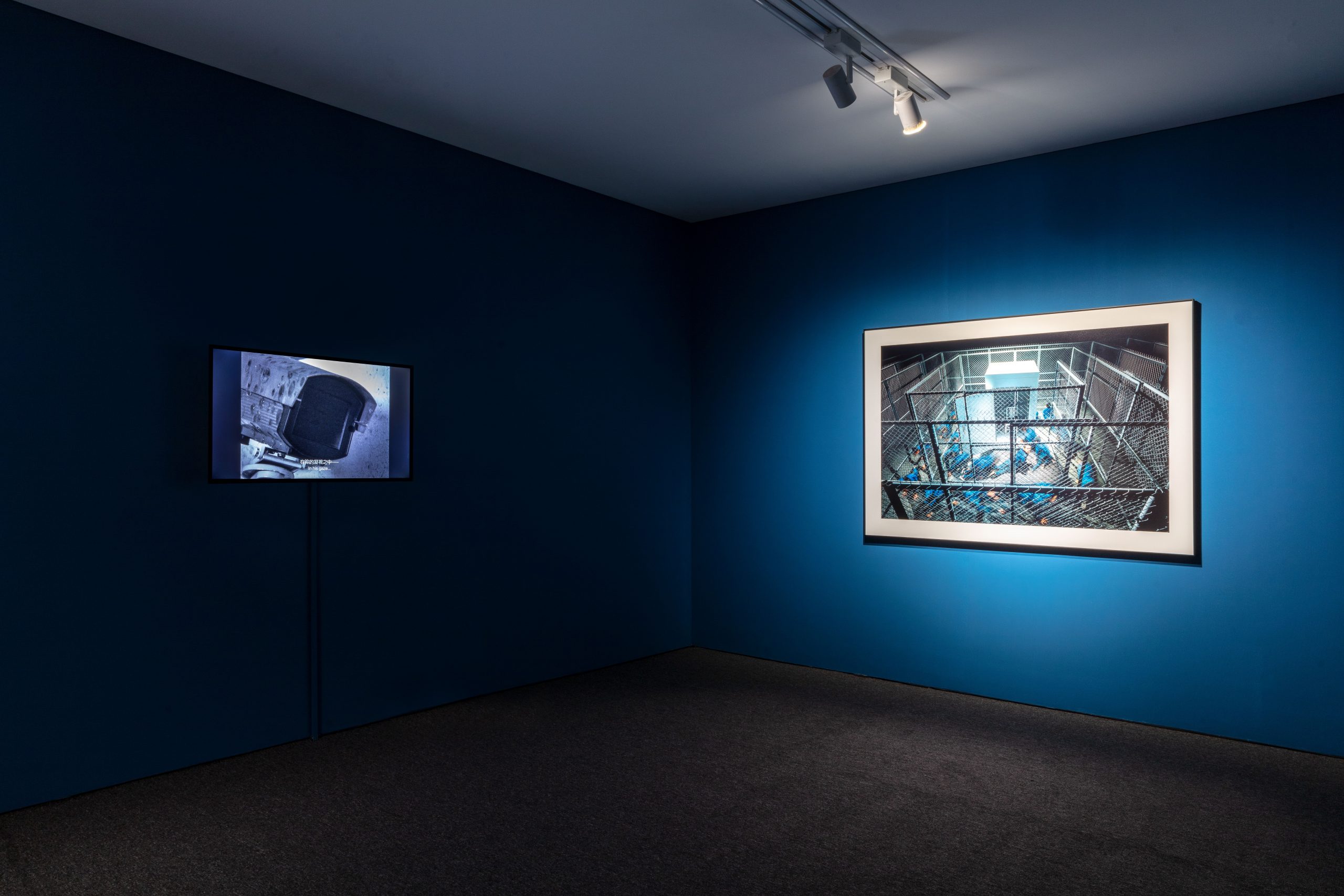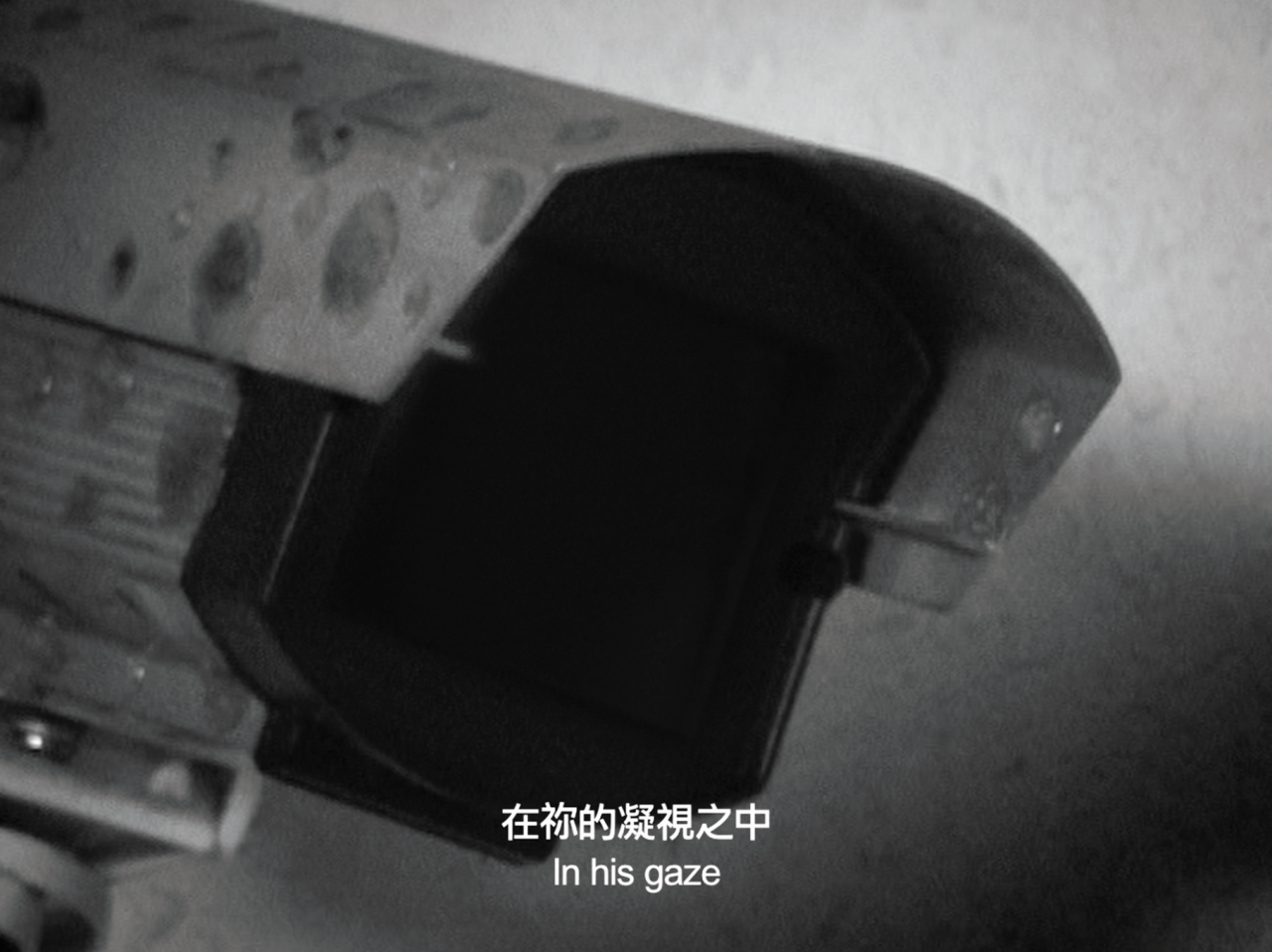Chen Chieh-jen:
Notes on the Twelve Karmas
Duration: 14 OCTOBER 12:00 AM
- 14 NOVEMBER 11:59 AM (CST), 2023

“Therefore, I want to make the point that, if we can learn the Buddhist methods of using desire to transform desire and using māyā to detoxify illusion, then we can, based on bodily experience, learn to perceive a view of non-verbal, non-data śūnyatā that cannot be accurately calculated using any algorithm. For those who have been forsaken by society and lost their sense of existence, this view of śūnyatā is the only form of intellectual property that cannot be exploited, humanity must use these methods to establish another starting point for its sense of existence.”
——Chen Chieh-jen
The basis for Notes on the Twelve Karmas is a short film that Chen Chieh-jen shot and edited between 1999 and 2000. In the film, two visually impaired people are in a closed space filled with surveillance cameras. They imagine a future world shaped by accelerated technological development, and in this world, there is a pregnant woman who dreams that her baby is born during a pandemic. There are also several posthumans who are uncertain what to think or do after their network cables become disconnected from their host computer. All of this is recorded by the surveillance cameras and uploaded to the host computer, which is in an unknown location.



Notes on the Twelve Karmas, 1999—2000/2018 Re-edited, DV transcoded to Blu-ray disc, b/w, single-channel, 8'16'', video still
Even though our world is not suffused with the apocalyptic atmosphere we see in the film, we live in a bio-political state of constant monitoring and manipulation that arises not only from technology, but also our endless desire. This same idea is discussed in Buddhism's Twelve Karmas.

Installtion view of "Chen Chieh-jen: Detoxify Illusion with Māyā", 2023, Long March Space, Beijing
About the Artist
Chen Chieh-jen was born in 1960 in Taoyuan, and currently lives and works in Taipei. While Chen’s primary media is video installation, in his production process, he has consistently experimented with community formation, integrating other participants with his film crew. This has added an activist quality directed at re-envisioning society in his creative process.
During Taiwan’s martial law period (1949–1987), a time marked by the Cold War, Chen employed extra-institutional underground exhibitions and guerrilla-style art actions to challenge dominant political mechanisms. After martial law ended, Chen gradually ceased making art, which lasted for eight years. Returning to art in 1996, Chen started collaborating with local residents, unemployed laborers, day workers, migrant workers, foreign spouses, unemployed youth and social activists. They occupied factories owned by capitalists and utilized discarded materials to build sets for his video productions. In order to visualize contemporary reality and a people’s history that has been obscured by neoliberalism, Chen embarked on a number of video projects in which he used strategies he calls “re-imagining, renarrating, re-writing and re-connecting.”
Starting in 2010, Chen began actively focusing on the fact that many people around the world have been reduced to working temporary jobs and lost sense of existence due to and lost sense of existence due to the corporatocracy’s pervasive control technology. Chen calls this universal situation “global imprisonment” or “at-home exile.” Based on these ruminations, Chen has considered how pervasive control technology can be qualitatively changed by transforming desire with alternative forms of desire and detoxifying illusion with māyā.
Chen Chieh-jen:
Notes on the Twelve Karmas
Duration: 14 OCTOBER 12:00 AM
- 14 NOVEMBER 11:59 AM (CST), 2023

“Therefore, I want to make the point that, if we can learn the Buddhist methods of using desire to transform desire and using māyā to detoxify illusion, then we can, based on bodily experience, learn to perceive a view of non-verbal, non-data śūnyatā that cannot be accurately calculated using any algorithm. For those who have been forsaken by society and lost their sense of existence, this view of śūnyatā is the only form of intellectual property that cannot be exploited, humanity must use these methods to establish another starting point for its sense of existence.”
——Chen Chieh-jen
The basis for Notes on the Twelve Karmas is a short film that Chen Chieh-jen shot and edited between 1999 and 2000. In the film, two visually impaired people are in a closed space filled with surveillance cameras. They imagine a future world shaped by accelerated technological development, and in this world, there is a pregnant woman who dreams that her baby is born during a pandemic. There are also several posthumans who are uncertain what to think or do after their network cables become disconnected from their host computer. All of this is recorded by the surveillance cameras and uploaded to the host computer, which is in an unknown location.



Notes on the Twelve Karmas, 1999—2000/2018 Re-edited, DV transcoded to Blu-ray disc, b/w, single-channel, 8'16'', video still
Even though our world is not suffused with the apocalyptic atmosphere we see in the film, we live in a bio-political state of constant monitoring and manipulation that arises not only from technology, but also our endless desire. This same idea is discussed in Buddhism's Twelve Karmas.

Installtion view of "Chen Chieh-jen: Detoxify Illusion with Māyā", 2023, Long March Space, Beijing
About the Artist
Chen Chieh-jen was born in 1960 in Taoyuan, and currently lives and works in Taipei. While Chen’s primary media is video installation, in his production process, he has consistently experimented with community formation, integrating other participants with his film crew. This has added an activist quality directed at re-envisioning society in his creative process.
During Taiwan’s martial law period (1949–1987), a time marked by the Cold War, Chen employed extra-institutional underground exhibitions and guerrilla-style art actions to challenge dominant political mechanisms. After martial law ended, Chen gradually ceased making art, which lasted for eight years. Returning to art in 1996, Chen started collaborating with local residents, unemployed laborers, day workers, migrant workers, foreign spouses, unemployed youth and social activists. They occupied factories owned by capitalists and utilized discarded materials to build sets for his video productions. In order to visualize contemporary reality and a people’s history that has been obscured by neoliberalism, Chen embarked on a number of video projects in which he used strategies he calls “re-imagining, renarrating, re-writing and re-connecting.”
Starting in 2010, Chen began actively focusing on the fact that many people around the world have been reduced to working temporary jobs and lost sense of existence due to and lost sense of existence due to the corporatocracy’s pervasive control technology. Chen calls this universal situation “global imprisonment” or “at-home exile.” Based on these ruminations, Chen has considered how pervasive control technology can be qualitatively changed by transforming desire with alternative forms of desire and detoxifying illusion with māyā.


